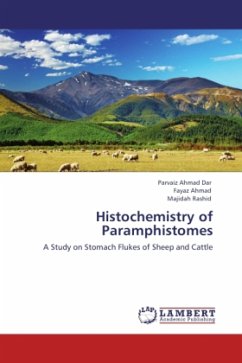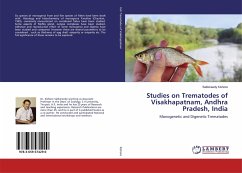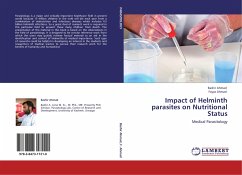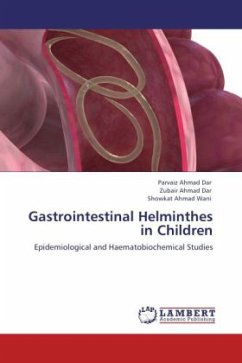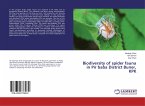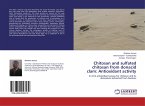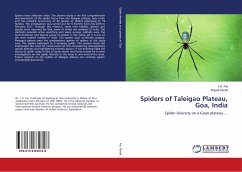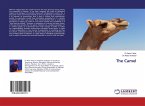Almost 300 species of helminthes parasitize livestock, including Paramphistomes (stomach flukes). Paramphistomes are the aetiological agents of the disease -Paramphistomiasis. Paramphistomiasis rank high in significance of helminthic diseases of sheep and cattle. The higher incidence of Paramphistome infections in domestic animals causes death of young ones, lowers productivity and thus leads to heavy economic losses. In order to develop various control measures to these helminthes we should have a clear understanding of host parasite relationship and a thorough understanding of the host parasite relationship can not be realized until a careful study is made on the biochemical nature of the parasite and its host. Histochemical study helps us to investigate qualitatively the biochemical pattern of different tissues. Such studies will increase our knowledge of worm physiology, which could further lead to deeper understanding of the well recognized host parasite interactions and such information would be valuable in designing control measures that are efficient and economical. This book presents the detailed histochemistry of two species of Paramphistomes of sheep and cattle.

